What is native mobile app development
A Comprehensive Guide On - What is native mobile app developmentLast updated on 16 Jan 2022 by Dezven
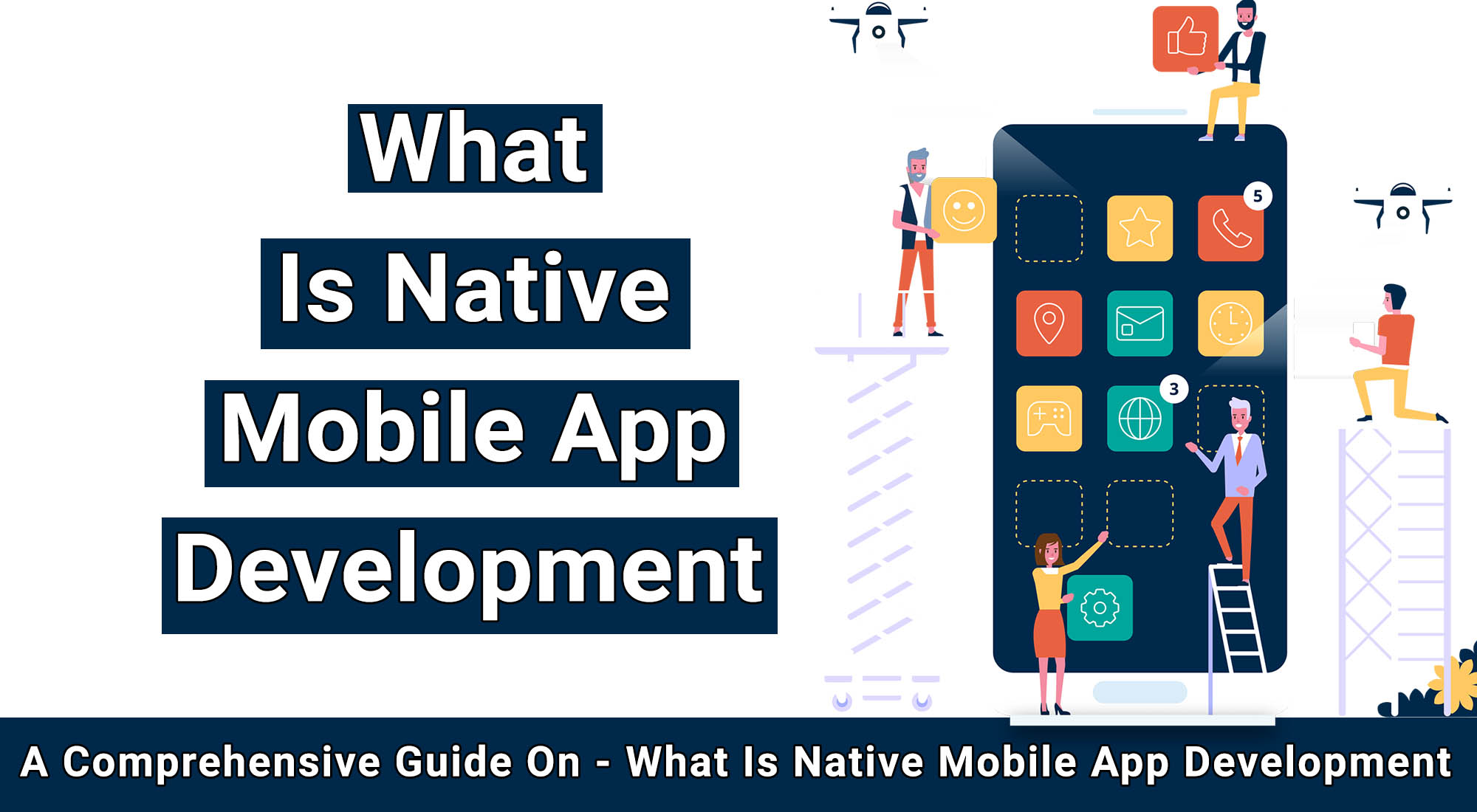
- What is mobile app and mobile app static
- What is native mobile app development
- Advantage of native mobile app development
- Disadvantage of native mobile app development
- Example of native mobile app
- Cost of Native mobile app development
- Skill requires for native mobile app development
- Native Mobile app development Tools
- Native vs hybrid app
- Conclusion
What is meant by mobile app development and mobile app static
Mobile App - A mobile application, which most commonly called as an app, is a category of application software created to run on a mobile device, as, smartphone and tablets. Mobile Apps are usually a small, independent software with restricted function. The use of apps on mobile got famous by launch pf Apples and its app store. At present with Apple, google and others have started creating the mobile apps.
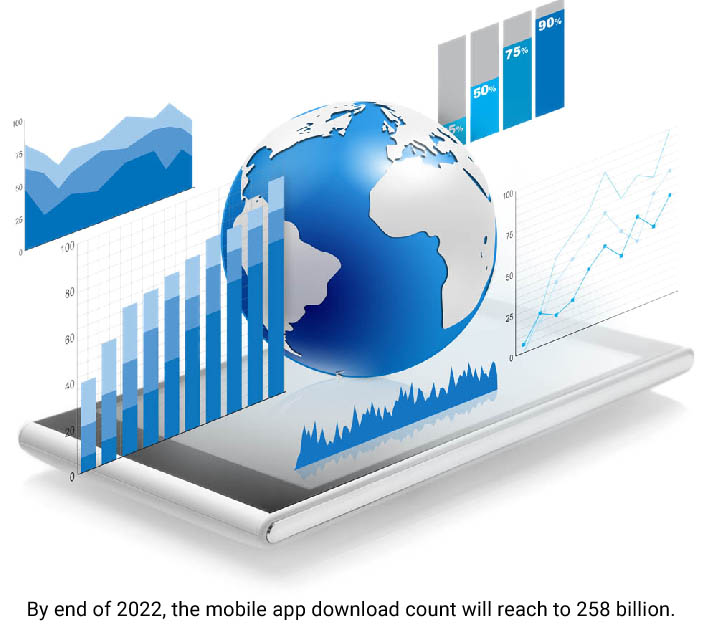
Mobile app Static – Following the most unbelievable year of 2020, the stay and work from home, the economy has got a drastic a boom, especially mobile app industries. Lockdown has increased the time people resting on mobile devices. Let’s see the worldwide statics of it -
- It has been found in research that, a every second person on earth has minimum of 50+ app installed in his or her device.
- By end of 2022, the mobile app download count will reach to 258 billion.
- A usual person spend half to one hour of their time on apps such as Instagram, YouTube and music, before sleeping.
- By the end of 2022, the count of people using mobile app will reach to 7 billion.
- The mobile app market is increasing min by min and its user in increasing day by day and will happen to do so.
What is native mobile app development
Native mobile app is specifically created for one particular operating system and platform, that is either – iOS or Android.
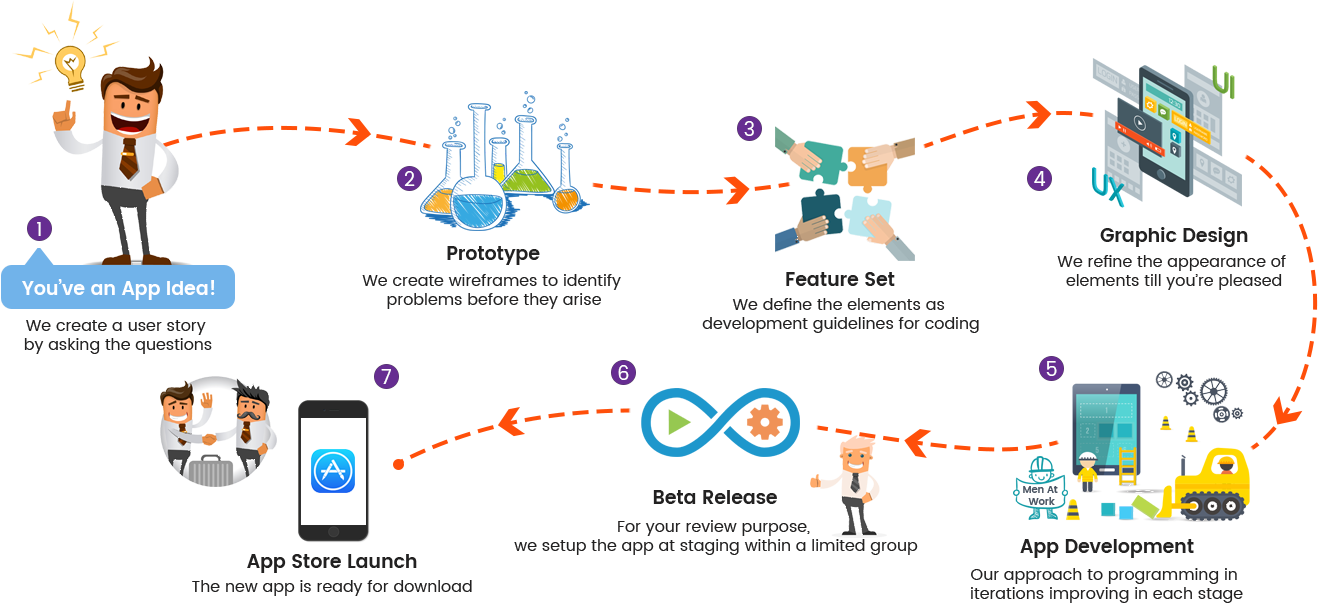
Native mobile app development involves tools and programming languages that are native for that specific device and its operating system. Apple, Microsoft, Google, and other app developer design particular tools and interface for their platforms and apps.
For create iOS mobile app, developers involve programming languages such as Objective-C and Swift, and use environments like XCode or AppCode, also adds iOS SDK and Cocoa Touch.
For creating Android app, developers involve programming languages such as Java, C+, C++ and Kotlin and use the environments such as Android Studio and Eclipse, also adds Android SDK and Mockplus.
For creating Windows apps, developers involve programming languages such C# and C++, and use environment like Microsoft Visual Studio, also adds Windows Phone SDK and Silverlight SDK.
A native Android app will not run on the iOS platform and conversely.
Advantage of native mobile app development
Native apps provide a big range of benefits that are very pivotal for choosing a category of mobile app. Some of the advantages of Native mobile app development are listed below –
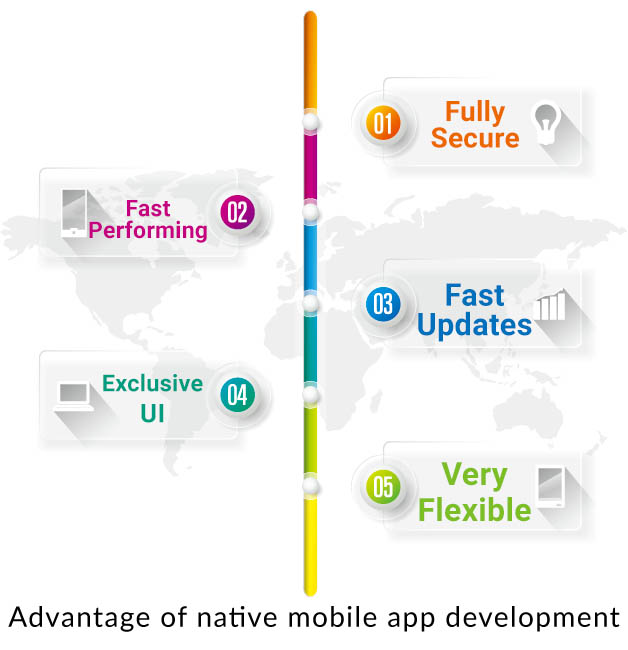
1) Performance : Native mobile app development offers seamless performance. When developers design any app by Native mobile app development the gets all support of hardware and operating system since native app focus on specific platform at a time. That is why developers as well as users receives a seamless performance. And due to this reason native app developments are fast and easy.
2) Exclusive User Interface : Each mobile app development platform has its own separate UI/UX. Native app developers too has its unique user interface which gives a unique feel and look to the operating system. This adds the better sense to user experience. With easy and friendly interface, users will get easily use to native app and demands it. Thus, native mobile app help developers to attract more customers.
3) Security : Security is the first and foremost demand of users. And for this, Native app developers offers best and strong security to the users. Native mobile applications are created for a single operating system, so the data is restricted to a single infrastructure, Thus, decreasing the chances of risks.
4) Fast updates : Whenever Android and iOS generate any updates, native app developers get immediate access to the new features. And their users the first to experience it. Immediate access to the new features makes the native mobile app development approach more profitable to customers and developers too.
Disadvantage of native mobile app development
Currently, the majority of mobile app development platforms are creating for more than one operating system. When developers have to make a specific platform for the operating system of native app for each native mobile app, developers have to use separated different programming languages, tools, environments, SDK, designs and interface. This becomes time consuming and exhausting.
Therefore, the disadvantages of native app developments are –
- Time consuming
- Costly
- And required skilled developers.
Example of native mobile app
Native mobile is the first choice of developers and mobile companies. Therefore, many popular apps development comes under the name of Native mobile app. Some of them are listed below-
- Pokémon GO.
- The New York Times.
- TechCrunch.
- Pinterest.
- Facebook.
- LinkedIn.
- Instagram.
- Google Maps.
- Spotify
Cost of Native mobile app development
The price of development of many types an app depends on a many different factors such as its category such as - mobile game app, app for business, social networking apps, lifestyle apps, etc. Then comes the factor: platforms as iOS, Android, and Windows Phone, etc., its design such as basic or custom and lastly number of features.
As native app development creates single platform for the creation of each application, it becomes costly for the mobile app developers. Therefore, on a rough count, the cost for developing a native app goes to around $100,000.
Native apps do cost developer more but it offers a best and unique experience to the user, which is worth.
Skill requires for native mobile app development
A. Android
1) C++
C++ is a programming language with general purpose and is greatly used nowadays for programming. C++ included object-oriented, generic and imperative types of programming features. C++ works for lots of platform such as Windows, Linux, Unix, Mac, etc.
2) Kotlin
Kotlin is a programming language launched by JetBrains in 2011, Kotlin is also general-purpose programming language. In 2017, Google declared Kotlin as its official language for the development of android app. Kotlin programming language is open sourced and object-oriented.
3) Java
Java is one of the most popular programming languages for the developer of mobile application. Java is robust, high performing level and secure. It has been the default language of Android apps. Android applications are majorly developed including Java programming language with SDK. Java is one of the best programming language for mobile app development
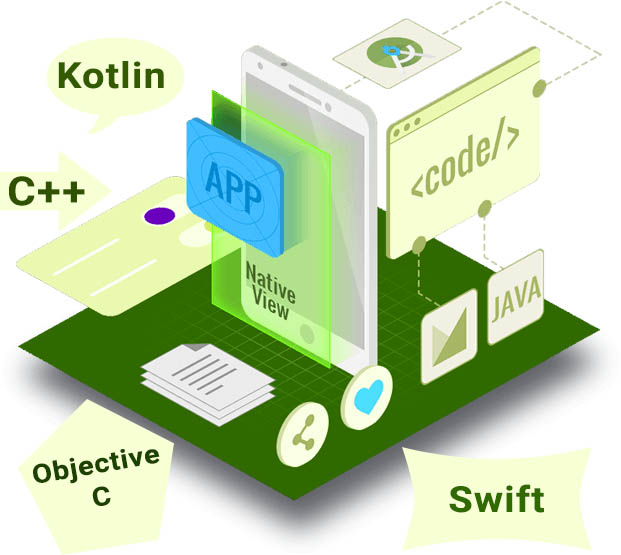
B. iOS
1) Objective-C
Objective-C is a programming language which is general-purpose and object-oriented. It is capable of adding Smalltalk -style messaging to the C programming language. It is the main programming language that is used by Apple for its macOS and iOS, and interfaces (APIs), Cocoa and Cocoa Touch.
2) Swift
Swift is a programming language developed by Apple Inc. It is general-purpose, multi-paradigm and compiled. Swift is the open-source community. It was first entered in market in 2014. Swift was developed as a replacement Objective-C, Apple's earlier programming language.
Native Mobile app development Tools
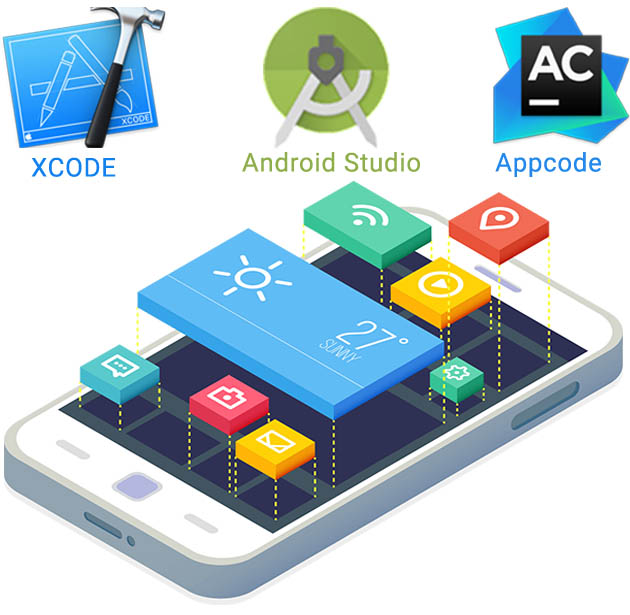
1) Xcode
Xcode is a tool used by the developers for the creation of mobile apps acceptable for expand Apple platforms such as iPhone, iPad, or Apple TV and watch. Xcode employs Swift programming language for development of applications. It was first launched in market in the year 2003.
Xcode is an Integrated Development Environment (IDE). Which simply means that it also involves many different additional tools that are required for the app development. Xcode is one of the most famous tools for creation of apps. It is the major choice for developers for writing.
2) Android Studio
Android Studio is Integrated Development Environment (IDE) for the development of android application. Android Studio offers the developers more features that increases the productivity while creating Android apps. Android Studio was introduced on 16th May 2013 at the Google I for Android app development.
Android Studio is a framework of Native app. Android studio offers easy way out for coding and designing. Its layout designer also makes it very effective to use and reduces coding time. Android Studio encompasses drag and drop features for designing the layout of app.
3) Appcode
AppCode is a software of JetBrains’ standout for iOS and macOS app development with IDE tool. Appcode works with Objective-C, Swift, and C / C ++ programming languages, and also supports web technologies such as JavaScript, HTML, XML, CSS, etc. AppCode offer a good range of integrations involving CocoaPods which is an application-level dependency manager.
AppCode offers a wide range of profits to developers like saving time on tasks, and fixing errors and increasing the overall productivity.
Native vs hybrid app
Native app and Hybrid app have some similarities but many different features too. Now, under this section let’s explore the difference between the two-
| Native app | hybrid app |
|---|---|
| Codes separately for each app | Code once for multiple apps |
| Specific to each platform | Codes the same for multiple platform |
| High Performance and speed | Moderate Performance and speed |
| Can runs in offline mode | Web like look and feel |
| Excellent Security | Not highly secure |
| Unique User Interface design | More expose to bugs |
| Expensive than Hybrid | Less Expensive than native. |
Conclusion
Native mobile application is platform specific, codes separately for each app and restricted to one operating system. Also have all the popular and interesting programming languages with creative tools and environment with add the value to it. Native app offers everything a developer can ask for and user desire for. It is costly but provides that worth features and function.

- What is cross platform mobile app development
- What is the difference between Hybrid Apps and Native Apps
- What is hybrid mobile app development
- What is mobile app development
- What are the different types of mobile app development
- What is Web based mobile app development
- What technology framework is used to build hybrid mobile apps
- Which Programming Language is used for Android Application Development
- Best Programming Language For Mobile App Development
Gain a clear understanding of native mobile app development through this concise article, exploring the concept and benefits of building apps that are specifically tailored to a particular platform, resulting in enhanced performance and user experience.